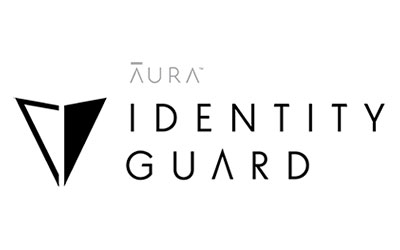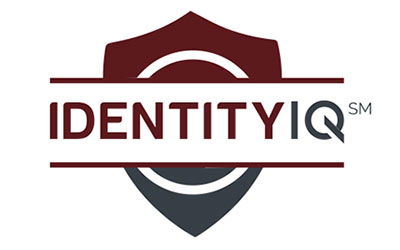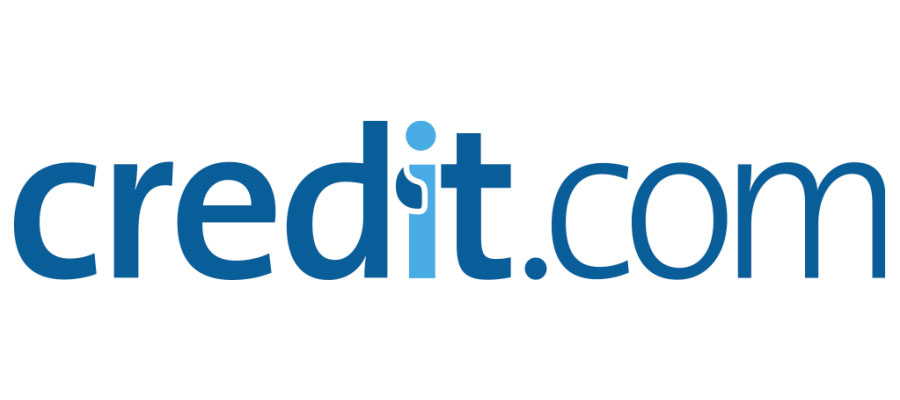Identity theft is one of the fastest-growing crimes in the world. When identity theft happens, it means your personal information has been stolen and used without your consent to commit fraud or other crimes. The fallout can damage your credit, leave you with unwanted bills, and require countless hours to resolve.

Identity thieves can obtain and misuse your Social Security number, bank account numbers, credit and debit cards, and other personal and financial information in many ways. They might go through your trash, steal your wallet, or hack your online and financial accounts. In recent years, data breaches at major companies have been a significant source of personal data for identity thieves.
To help protect yourself, consider enlisting the help of an identity theft protection service. In our research, we found many companies that weren’t up to standard, but we did find a few gems. Here are the top four identity theft protection services that deserve your business.
Best Identity Theft Protection Services
Identity Guard
Identity Guard has more than 20 years of identity theft protection experience. They have three identity protection plans ranging from $19.99 to $24.99 per month.
IdentityForce
If you’re one of the lucky ones and haven’t had your identity stolen yet, Identity Force is a solid company.
IdentityIQ
IdentityIQ has been offering comprehensive identity theft protection since 2009. The company strives to protect its customers from identity theft by providing educational resources and monitoring their personal information.
LifeLock
LifeLock has some pretty comprehensive alert options. Sign up with them, and you can get identity monitoring alerts and data breach notifications via SMS (aka phone texts), their mobile app, or your email.
How an Identity Theft Protection Service Can Protect You
A solid identity theft protection service not only helps to protect your identity but also aids in the recovery process if your identity has been stolen.
These services work by monitoring your personal and financial information for signs of fraudulent activity. They scan the dark web for your information, monitor your credit reports from the three major credit bureaus, and alert you to any changes. Many identity theft protection companies also monitor your social media accounts, court records, payday loan applications, and more.
The benefits of using an identity theft protection service are numerous. You get peace of mind knowing that your personal information is being actively monitored for signs of fraud. If something does happen, these services often offer recovery services and insurance to cover stolen funds, legal fees, and other costs associated with resolving identity theft.
Key Features of Identity Theft Protection Services
Credit Monitoring
Credit monitoring is one of the primary features of identity theft protection services. The service will monitor your credit reports and credit scores from the three major credit bureaus and alert you to any changes. This could include new accounts opened in your name, changes to your credit limits or balances, or inquiries into your credit files.
Dark Web Monitoring
The dark web is a part of the internet that isn’t indexed by search engines and is often used for illegal activities, including buying and selling personal information. Dark web monitoring services scan the dark web for your information and alert you if they find it.
Recovery Services
If your identity is stolen, the recovery services offered by many identity theft protection companies can be invaluable. This might include helping you contact financial institutions, assisting with police reports and dealing with credit bureaus, and offering advice on how to protect yourself in the future. Some companies even have licensed private investigators on staff to assist in your case.
Alerts for Suspicious Activity
Most identity theft protection companies will alert you if they detect any suspicious activity related to your personal or financial information. This could be a new account opened in your name, a change in your credit report, or your information found on the dark web.
Identity Theft Insurance
Many services also provide identity theft insurance. This can cover costs associated with resolving your case, such as legal fees, lost wages, and even some out-of-pocket expenses. The amount of insurance coverage varies from service to service, with some providing up to $1 million in coverage.
How to Choose an Identity Theft Protection Service
When it comes to safeguarding your personal and financial information, not all identity theft protection services are created equal. Choosing the right service can be a game-changer in preventing identity theft and managing the aftermath if your data is compromised. Here’s a more detailed look at the factors you need to consider when selecting a service.
Cost
Identity theft protection services are typically subscription-based, with either a monthly or annual fee. The pricing can vary significantly from one provider to the next, depending on the features offered. Some companies offer different levels of service at different price points, allowing you to choose a plan based on your specific needs and budget.
Always make sure to compare the cost of the plans against the features they provide. Look at whether the company charges extra for certain services or if they are included in the base price. A service may seem expensive at first, but if it provides comprehensive protection and additional features like identity theft insurance and recovery services, it may be worth the investment.
Services Offered
When assessing different identity theft protection companies, pay close attention to the specifics of what each company offers. Core services typically include credit monitoring from one or all three major credit bureaus, dark web surveillance, and alerts for suspicious activity involving your personal information.
However, the best identity theft protection companies go beyond basic monitoring. Look for features such as three bureau credit monitoring, which keeps tabs on your credit reports from all three credit bureaus rather than just one. This can help detect fraudulent activity more quickly.
Other valuable services include social security number monitoring, financial account monitoring, and alerts for crimes committed in your name. More advanced services might include parental controls to help protect your children’s identities, investment account alerts, or monitoring for misuse of your driver’s license number.
Recovery assistance is another key feature to look for. Identity recovery services provide expert help to guide you through the process of reclaiming your identity if it is stolen. Some companies have a team of licensed private investigators to assist you, while others offer a dedicated case manager.
Lastly, ensure that the company offers identity theft insurance. This can cover a variety of expenses associated with resolving identity theft, such as lost wages, legal fees, and out-of-pocket costs.
Company Reputation and Customer Reviews
The reputation of the company matters a lot in the identity protection industry. Make sure to research the company’s track record in the industry. Look at how long they’ve been in business and whether they’ve had any major complaints or legal issues.
Customer reviews can provide real-world insights into how the service operates. Look for reviews that mention the company’s responsiveness, the effectiveness of their monitoring services, and how they handle identity theft incidents. Positive reviews can be a good indicator of a company’s commitment to their customers.
Also, consider the customer service provided by the company. The last thing you want when dealing with the stress of identity theft is poor customer service. Look for companies that offer 24/7 customer support, easy-to-use interfaces whether it’s a desktop or a company’s mobile app, and straightforward, efficient processes for reporting issues or suspicious activity.
Keep in mind, no identity theft protection service can completely prevent identity theft. However, the right service can provide effective monitoring, timely alerts, and the necessary support to help you recover if identity theft occurs.
Child Identity Theft Protection
If you have children, consider a service that offers child identity theft protection. Children’s identities can be particularly attractive to identity thieves because the theft can often go undetected for years until the child applies for a credit for the first time. Services that offer this feature will monitor your child’s personal information for signs of fraudulent activity, providing an extra layer of protection for your family.
In summary, choosing an identity theft protection service is a decision that should be based on careful research and consideration of your personal or family’s needs. Understand the features each service offers, compare costs, consider the company’s reputation and customer feedback, and select a service that offers comprehensive protection for peace of mind.
How can you prevent identity theft?
Our list of the best identity theft protection services can help you guard your identity. However, you can do a few things to protect your identity without paying for identity theft protection. To remain off the list of victims, follow these tips as often as possible — if not every day!
1. Freeze your credit reports
Whether you think your financial information has already been compromised or you’re just worried about the potential for identity theft, consider freezing your credit file. It’s not a complete solution, but it can be a significant barrier to someone else opening an account in your name.
Here’s how it works.
You pay the credit bureaus a small fee, and they’ll essentially put your accounts on lockdown. When someone goes to apply for a loan or credit card in your name, the creditor won’t be able to run a credit check, and the application should be denied.
Intrigued? Find out more about how and when a credit freeze might be right for you.
2. Use intricate passwords, and never use a password more than once
We can hear you from over here: “That’s crazy! How am I going to remember all of my passwords if I can’t reuse any of them?”
That’s where a password manager like LastPass comes in. They remember all of your passwords for you, so you don’t have to. All you have to do is remember your master password, and LastPass remembers the rest.
Create a Strong Password
Make sure your passwords are at least eight characters long and contain symbols, numbers, and both uppercase and lowercase letters. Many people get in the habit of having one great password and countless mediocre passwords.
They use their strong password for important sites and their mediocre password for inconsequential sites. If you want to keep your identity safe, you need to vary it up a bit because all it takes is one time for someone to use keystroke software on you. They get one password from you, and then they’re able to run amok on all of your highly frequented websites.
3. Don’t click on links that take you to random websites
This should be a no-brainer, but even the best of us fall prey to clickbait at times. Other than getting you to go to a website where you buy something, often, its purpose is far more nefarious. In fact, it could be quietly collecting information off of your computer. Just don’t click unknown websites, and you should be fine.
Another thing to keep in mind is that sometimes fake bank emails are sent out in the hopes that you’ll re-enter personal information, such as your Social Security number, to verify that you are, indeed, you. Of course, your bank will never do this.
There are far more sophisticated ways to verify someone’s identity, and even if it does need you to re-enter personal information, it will only ever do so on its main site.
4. Learn the ins and outs of your smartphone
Cell phones are not just phones anymore. They are traveling computers and storage devices. And not just any kind of storage device, but a storage device that has nothing but your personal data on it.
So, it makes sense that you should protect it, right? In addition to not clicking on crazy links on your phone, you should:
- Opt for remote data wiping should you ever lose your phone. This enables you to erase all of your phone’s data from afar if and when you should ever lose it or have it stolen.
- Have a PIN to log in that you change regularly.
- Consider getting a phone with biometric authentication. What does that mean? It’s a fancy term for using part of your body to unlock your phone. The most common version is fingerprint recognition.
5. Check your statements
Typically, cybercriminals take out a new card in your name, but sometimes criminals can get their hands on your existing accounts. So, what you need to look for weekly, if not daily, are small charges.
These small charges are often only a dollar or a few cents. These kinds of charges are used to see if your bank or lender’s main computer will let the charge go through.
If it works, then they know it’s time to go on a quick spending spree before you cancel the card. Call your bank immediately if and when you ever see these kinds of charges. Call them just to be safe, even if you’re unsure and think it might be something you did. The earlier you can spot these things, the better.
Conclusion
In today’s digital landscape marked by increasing data breaches and identity theft incidents, vigilance in protecting your identity is critical. Choosing an identity theft protection service can offer comprehensive safeguards, swiftly alerting you to any suspicious activities linked to your personal and financial information.
However, relying solely on these services shouldn’t be an excuse to let your guard down. You need to remain proactive, regularly monitoring your financial accounts, credit reports, and being judicious about sharing personal details online.
Ultimately, whether you opt for a robust identity theft protection service, decide to self-monitor, or use a combination of both, the essence lies in prevention. Remember, it’s far easier to prevent identity theft than to recover from its aftermath.
Frequently Asked Questions
How long does it take to recover from identity theft?
Recovery from identity theft can be a long and complicated process, ranging from a few weeks to several months, or even longer. It largely depends on how quickly the theft was discovered, the extent of the fraudulent activities, and how promptly the recovery actions were initiated.
Can I monitor my credit reports by myself?
Yes, you can monitor your credit reports by yourself. In the United States, federal law allows you to get a free copy of your credit report every 12 months from each credit reporting company. Reviewing these reports can help you spot signs of potential identity theft early.
What is a credit freeze, and how can it help protect my identity?
A credit freeze, also known as a security freeze, lets you restrict access to your credit report, making it more difficult for identity thieves to open new accounts in your name. Most creditors need to see your credit report before they approve a new account, so if they can’t see your file, they may not extend the credit.
How often should I review my credit reports?
For self-monitoring, it’s recommended that you review your credit reports from each of the three credit bureaus—Experian, Equifax, and TransUnion—at least once a year. However, reviewing them more frequently can help you spot any suspicious activity sooner.
If I’m a victim of identity theft, who should I report it to?
If you’re a victim of identity theft, you should report it to your local law enforcement agency, your bank, and all three credit reporting agencies. In the United States, you should also report it to the Federal Trade Commission (FTC) through their website IdentityTheft.gov.
Can I take legal action if I become a victim of identity theft?
Yes, you can take legal action if you’re a victim of identity theft. You can file a lawsuit against the thief, or you might need to go to court to show you are a victim of identity theft if you’re wrongly arrested for crimes committed in your name. Consult a legal professional to understand your options.






